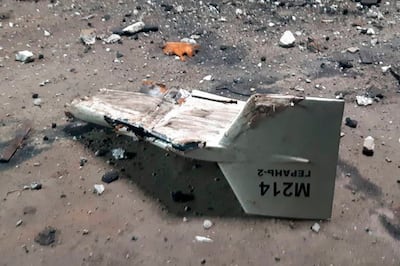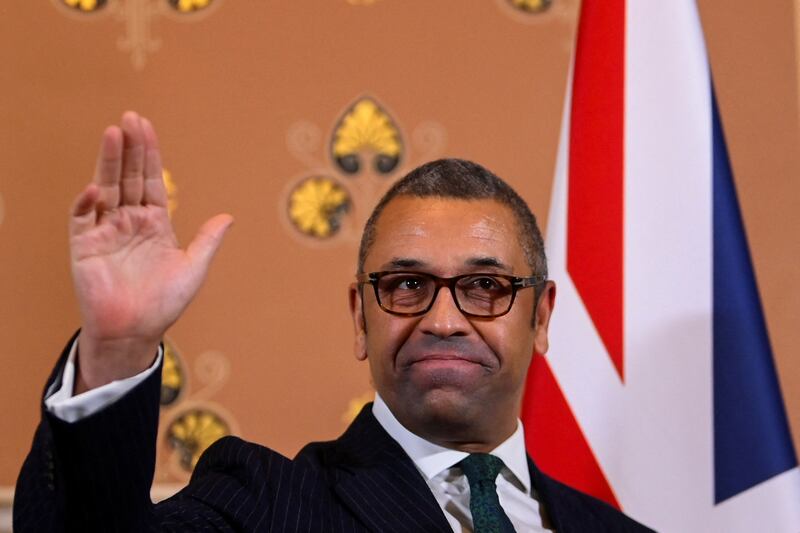Britain’s Foreign Secretary has condemned as “unacceptable” Iran’s supply of drones that are killing civilians in Ukraine, during his first keynote speech on Monday.
James Cleverly also emphasised that it was a “priority” to prevent Tehran from building nuclear weapons while avoiding a question over halting talks with Iran while it exports weapons to Russia.
Speaking to ambassadors and diplomats in the Foreign Office to outline his approach to the UK diplomatic agenda, he also stressed that Britain remains a “reliable” ally despite the political chaos that has seen three prime ministers within the space of two months earlier this year.
Following his first speech as Foreign Secretary, Mr Cleverly was asked to give an undertaking that there would be no nuclear negotiations with Iran as long as public executions and drone bombings of Ukrainian cities continue.
“Our priority is to prevent Iran from acquiring nuclear weapons,” he replied. “But in parallel to that we will continue to act, to respond when Iran's actions are unacceptable, like for example, providing military drones which are being used to target civilians and civilian infrastructure by Russia in Ukraine.”
Mr Cleverly, who has been in post for three months, argued that Britain would attempt to “steer Iran into a better direction” that would be “a version of itself, that would be a good neighbour in the region”.
He suggested that the Tehran regime would benefit significantly if “they were willing to change their behaviours” and become “an inclusive member of the international community”.
But the politician, 53, insisted he would not “negotiate through the microphone from a distance” and was involved in talks that were “done in close co-operation with our international friends and partners and directly with the Iranians”.

He was also questioned about Britain’s standing in the world following the recent political chaos, including the resignation of Boris Johnson over the Partygate scandals and the financial turmoil caused by the proposed unfunded tax cuts during Liz Truss' short premiership.
He insisted that Britain was a “foundations stone nation” that had “incredibly robust institutions” which could survive such political upheaval.
“You talk about the short-term turmoil that we've experienced, and of course that has been broadcast all over the headlines but when I speak to my interlocutors around the world, one of the things that they remark upon incredibly positively is the stability that they see at the foundation level.”
Britain’s friends and allies welcomed its legal, political and business institutions that were “incredibly robust, predictable and reliable”, he said.
“That predictability and reliability underpinned by the rule of law is underpinned by a very, very stable political framework that we offer to the world”, Mr Cleverly insisted.
The UK would continue to work “most closely with those countries” that shared those values and “have stood shoulder-to-shoulder with us for many, many decades”.
But the UK could not “just hang on to the comfort blanket of our pre-existing friendships and alliances” and needed to ensure “that we're having conversations with those countries that are all also being wooed by other philosophies”.
Britain needed to “sell the benefit” of its stable institutions and its adherence to international law, using “peaceful mechanisms for dispute resolution”.
In his speech he pledged to make a “sustained effort to revive old friendships and to build new ones”, reaching far beyond “our long established alliances”.
In reference to the growing power of China, India and Gulf countries, he lauded this as a positive development that showed the world was becoming wealthier.
“We don't view the changing balance of power with any sense of loss, or any sense of threat,” he said. “The reason why the world's geopolitical centre of gravity is moving south and east is precisely because hundreds of millions of people have escaped poverty. That is the single most wondrous development of my lifetime and a vindication of the world order.”







